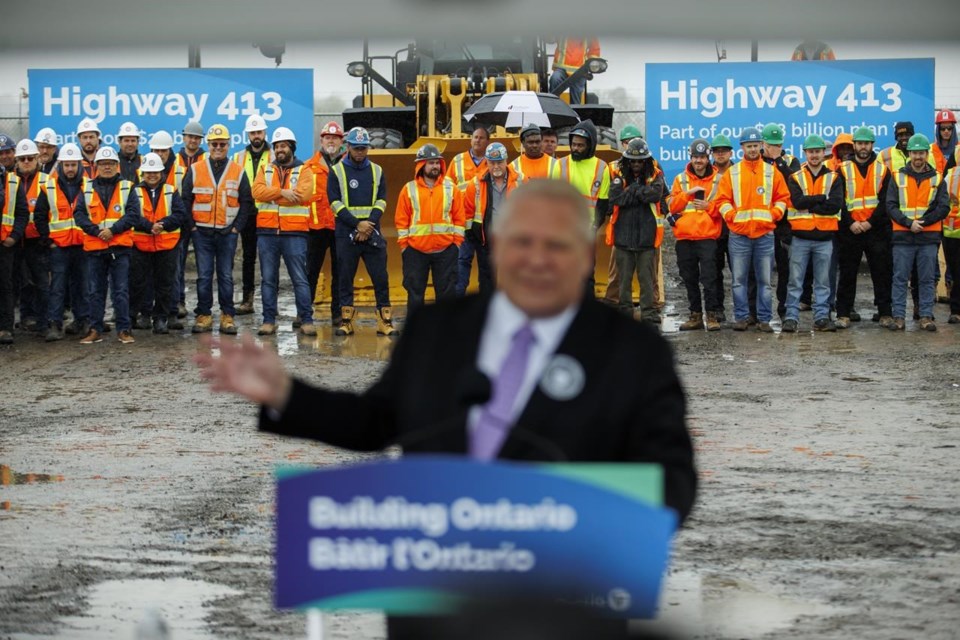Ontario plans to begin buying up land to build a controversial highway in the Toronto area that will pave over prime farmland, Premier Doug Ford said Tuesday.
The province will be meeting with landowners soon to buy property at fair market value, he said.
"Highway 413 is going to be a game changer for the region," Ford said.
Field work has already begun on the proposed 52-kilometre highway that will run west from Highway 400 in Vaughan, Ont., through Peel Region and southwest to Highway 401 in Milton, Ont., west of Toronto.
Early construction contracts will be awarded next year, Ford said.
Earlier this month, Ontario and Ottawa agreed to form a joint working group to minimize the planned highway’s environmental impacts in areas of federal jurisdiction.
The federal government had marked the highway project for a federal review under its powers in the Impact Assessment Act, but abandoned it after the Supreme Court of Canada found parts of that act unconstitutional.
The province took the federal government to court to stop Ottawa from using the impugned legislation on the 413 project, which led to the agreement.
The province's environmental assessment continues.
The highway's construction will create 3,500 jobs, Ford said. The province has not said how much the highway will cost.
The project has received blowback from those concerned about the effects on the environment.
“Highway 413 is an environmental wrecking ball that’s going to pave over 2,000 acres of prime farmland, including 400 acres of the Greenbelt – all to save commuters a mere 30 seconds," said Green Party deputy leader Aislinn Clancy.
A 2017 study said the new highway would save commuters an average of 30 seconds across all roads in the Greater Golden Horseshoe.
The province says the new highway will actually save commuters 30 minutes if they travel the entire length of the road from Vaughan to Milton.
The highway is part of the Ford government's effort to reduce gridlock and expand public transit.
The highway was first launched by the Liberals in 2007 and a long series of consultations and studies followed. Former Liberal premier Kathleen Wynne's government paused the environmental assessment in 2015 before killing the project in 2018.
Ford's Progressive Conservative government then resurrected the project in 2019, and, in 2021, the federal government had marked it for an impact assessment.
This report by The Canadian Press was first published April 30, 2024.
Liam Casey, The Canadian Press




